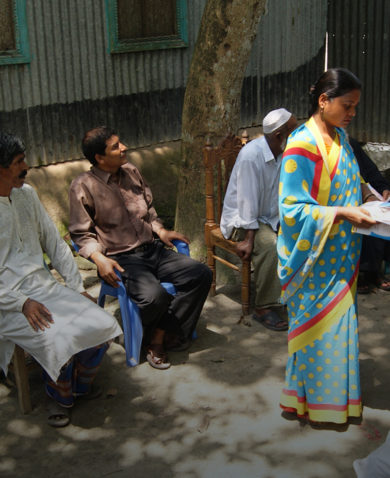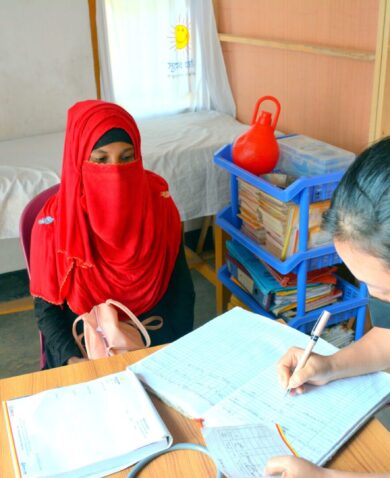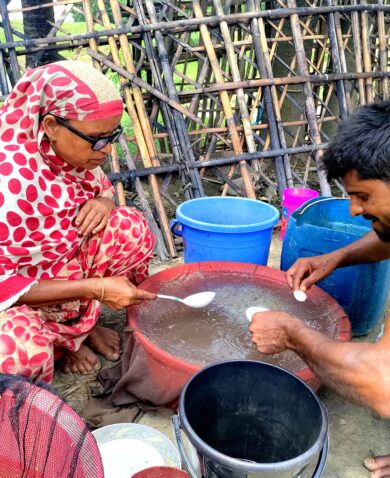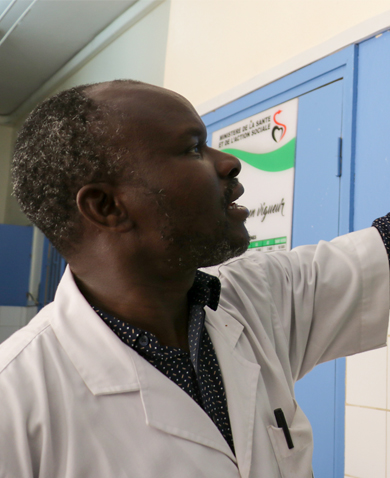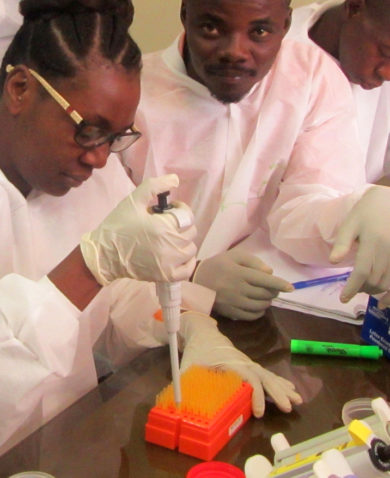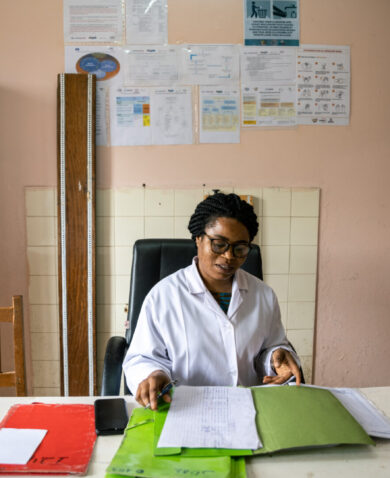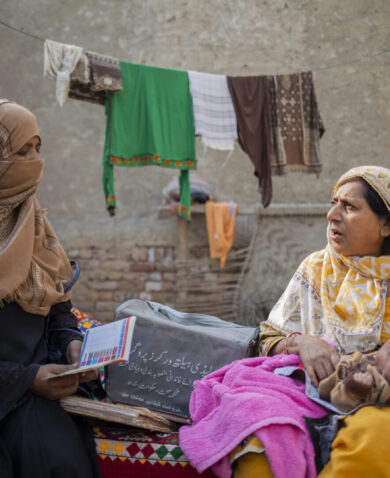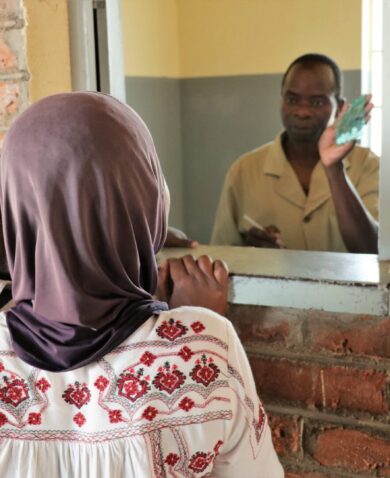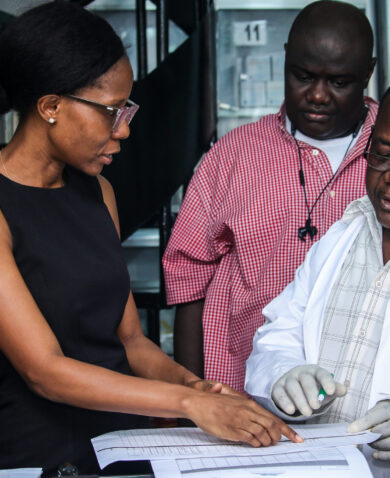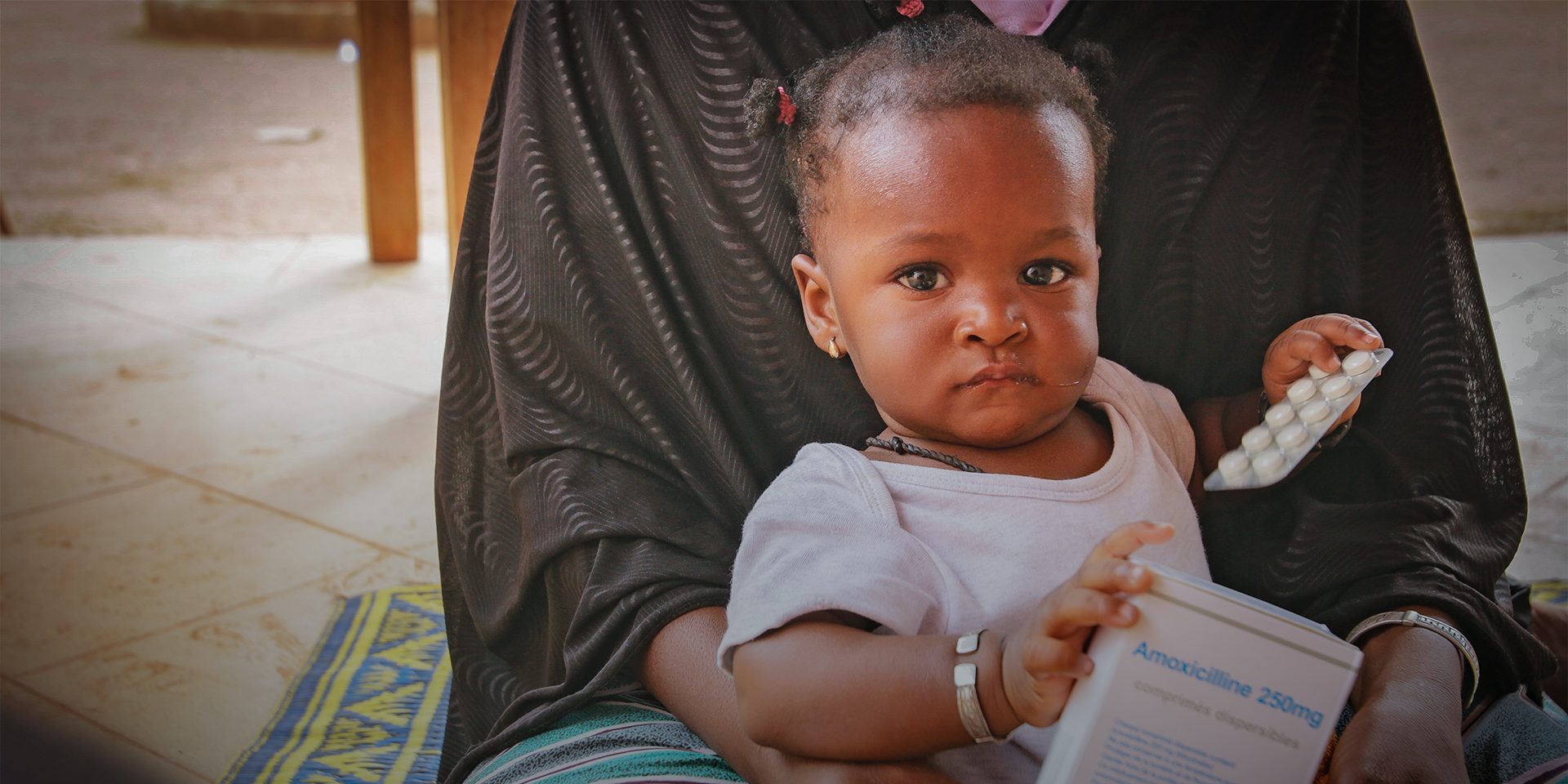
An Imperative to Support Local Innovation in the Health Sector
February 28, 2024 | 4 Minute ReadTo achieve health for all, the global health community must bring localization, private sector engagement, and innovation together into a single agenda that supports stronger, more resilient health systems.
Innovation and global health have always gone hand in hand. From the early days of halting the spread of disease through behavior change campaigns on handwashing and vaccines, to a global, coordinated response to the HIV/AIDS crisis and the COVID-19 pandemic, the development of new tools and approaches in support of improved human health is at the core of what global health practitioners do. Increasingly, global health investment has also broadened from a focus on biomedical research and development (R&D) to one inclusive of innovations in areas such as service delivery, digital health, market shaping, disease surveillance, and health workforce. Yet as the global burden of disease—and the diseases themselves—change, so must those who fight against them. One opportunity is where the global health community sources that innovation. By combining the localization agenda with holistic investments in the private sector, we can enable local innovation in global health like never before.
Three Elements: Innovation, Private Sector, and Localization
As the economies of many low- and middle-income countries (LMICs) grow, we have also seen an increase in the contribution of the private sector to health. From the hundreds of private clinics and pharmacies in major African cities to an explosion in southeast Asian pharmaceutical manufacturing, healthcare is not just a public sector affair. Where environments are good for business, healthcare is booming. At the same time, health funding is changing. Many bilateral and multilateral donors have reduced their contributions to global health alongside a push for more domestic resource allocation (health spending) by LMIC governments. Global health donors are also targeting a higher percentage of their own funding towards entities headquartered in LMICs. For example, USAID has set the ambitious goal of having 25% of its funding go to locally-led organizations by 2025. These collective efforts to shift resources and decision-making to LMICs, called localization, are reshaping how – and where – we arrive at the solutions that drive transformative change in global health.
To date, however, localization has remained somewhat divorced from conversations around both innovation and the private sector. While there are programs targeting innovators in LMICs, these efforts are still dwarfed by the number and value of health innovation investments flowing to organizations based in North America and Europe. Investing in Western organizations pioneering health innovations is not inherently bad, and across the board, there is also evidence that recent health innovation spending is beginning to skew towards LMICs. Rather, there is a missed opportunity to deliberately bring innovation, localization, and private sector engagement together in ways that better support locally-led global health solutions as well.
It can take a lot of resources and effort to take advantage of funding opportunities in global health. What’s more, the very qualities often valued in innovators—small, nimble, dynamic—often mean less capacity in areas like business development, human resources, regulation, or compliance. In addition, health innovators in some LMICs, especially private companies, face barriers their Western counterparts often don’t. Frontier Health Markets (FHM) Engage, the USAID-funded flagship project in private sector engagement in health, implemented by Chemonics and a consortium of regional and country-level partners, found that high-interest rates and a lack of access to capital, the scarcity of foreign exchange, overregulation, competition with free or subsidized products and services provided through the public sector, slow repayment from public sector contracts, and heavy import duties and restrictions in some LMICs contribute to an underdeveloped private health sector. Caught between a challenging local enabling environment, an uncertain funding model, and high barriers to accessing funding from international donors, even local private health innovators with great ideas can struggle. Earmarking funding for locally-led organizations is not enough.
Championing Locally-Led Innovation in the Health Sector
The global health community can bring localization, private sector engagement, and innovation together into a single agenda that supports healthy, thriving, dynamic, solution-driven health systems. And indeed, some efforts are already doing that.
The Investing in Innovation Africa (i3) initiative, for example, supports companies that offer data-driven distribution of healthcare products and services in Africa and is sponsored by a global network of industry experts and donors (including Chemonics). i3 connects and supports early and mid-stage private health companies with funding, technical assistance, and access to markets. Companies range from pharmaceutical development to health delivery. So far, 60 businesses have been supported through this powerful initiative. By combining access, funding, and support with a focus on Africa, i3 has taken a holistic approach to enabling locally-led innovation on the continent.
Another example is FHM Engage itself, where, in partnership with USAID, we are increasing access to financing for health innovators in India and Liberia by connecting them with low-interest capital and business support services. This health marketplace will help promising health startups achieve proof of concept, reach new markets and funders, and expand their offerings. Concurrently, FHM Engage is partnering with local stakeholders in countries such as Kenya, Liberia, and Pakistan to improve government stewardship of the private sector through increasing public sector capacity to partner with the private sector, strengthening private sector associations, and right-sizing regulation. This combination of bottom-up and top-down approaches is designed to both directly support health innovators and partner with local stakeholders to improve the enabling environment in which they operate.
Also, through the USAID Advancing Universal Health Coverage Activity (AUHC) in Bangladesh, Chemonics supported the Surjer Hashi Network (SHN), a 134-clinic private healthcare network in Bangladesh that operated with the goal of providing accessible and affordable quality healthcare services to underserved communities. AUHC partnered with SHN to co-create a sustainable business model to address its dual objective of achieving social impact and financial viability, independently from a donor-funded project. Improving service quality was a key focus of AUHC, which was addressed through a comprehensive quality policy and strategy whose innovative features included the establishment of a quality management system (QMS). As a result, the quality of antenatal care visits improved from 0% to 70% and the quality of deliveries from 0% to 85%, reflecting compliance with all 26 (for ANC) and 10 (for deliveries) standards. The QMS maturity score also increased from 69 to 92 in a scale of 100 over one year,effectively building the capacity of a local private entity.
***
Innovation in health is an imperative for achieving better health and well-being for all. It requires a commitment to collaboration, experimentation, and continuous learning—qualities that are critical to sustainable development impact. By fostering an enabling environment for private sector innovation as part of localization efforts, we unlock the creative potential of individuals and communities to design solutions that are contextually relevant, sustainable, and scalable.
Banner image caption: A girl receives amoxicillin dispersible tablets in a child-friendly formulation at a health center in Mali. Credit: Serge Ouedraogo, GHSC-PSM (2022).
Posts on the blog represent the views of the authors and do not necessarily represent the views of Chemonics.










